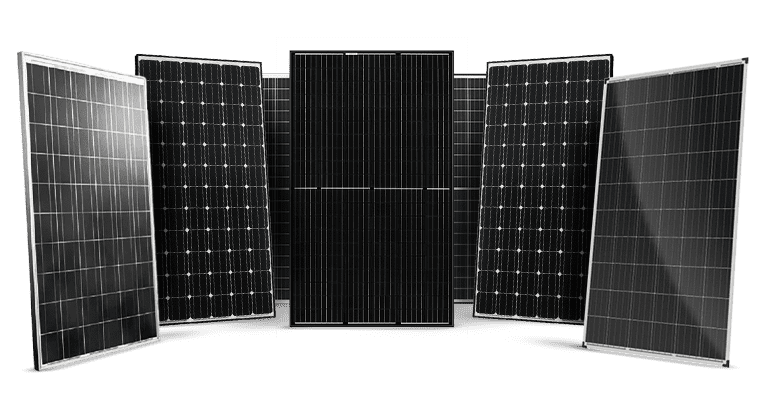Solar power panels are an excellent investment for any home or business, but their potential is only fully realized when efficiency is maximized. To get the most out of your solar power system, several factors must be considered, from installation best practices to long-term maintenance. This comprehensive guide will take you through the steps necessary to ensure that your solar panels operate at peak performance for years to come.
1. Proper Solar Panel Orientation and Tilt
The direction and angle at which your solar panels are installed play a significant role in determining how much sunlight they can capture. Optimal solar panel orientation varies depending on geographic location, but for most regions in the Northern Hemisphere, facing the panels due south is ideal.
Tilt angle is equally important. Panels should be tilted to match the latitude of your location to ensure they receive the most sunlight throughout the year. However, some homeowners opt for adjustable mounts, allowing them to fine-tune the angle seasonally to maximize sunlight exposure in summer and winter months.
Key Takeaways:
- For most regions, south-facing panels yield the highest efficiency.
- Adjusting the tilt of the panels periodically can further enhance performance.
2. Keep Solar Panels Clean
Dust, debris, bird droppings, and dirt can accumulate on solar panels, creating a layer that blocks sunlight from reaching the photovoltaic cells. This buildup can reduce energy production by up to 20%, according to some studies.
It’s essential to clean solar panels at least twice a year, or more frequently in areas prone to dust or pollution. When cleaning your panels, avoid harsh chemicals and opt for a soft brush or hose to gently remove dirt. Specialized cleaning services are available if you prefer professional care.
Cleaning Tips:
- Clean your panels early in the morning or late in the evening when they’re cool to avoid thermal shock.
- A soft brush and plain water will suffice for regular cleaning, but professional cleaning may be needed in heavily polluted areas.
3. Optimize Energy Consumption
To maximize the benefits of solar energy, homeowners should aim to use more electricity during daylight hours when the panels are generating the most power. This means adjusting daily routines to align with peak solar production. For instance, running high-energy appliances like washing machines, dishwashers, and HVAC systems during sunny periods can reduce reliance on the grid and lower electricity bills.
Additionally, smart home technologies such as smart thermostats and energy-efficient appliances can automate the process, ensuring that your home operates at peak efficiency without requiring constant manual intervention.
Energy Management Tips:
- Schedule heavy electricity usage for midday when solar production is highest.
- Invest in smart home technology to monitor and manage energy consumption automatically.
4. Install a Solar Battery Storage System
A solar battery storage system can store excess energy generated during the day for use at night or during cloudy periods. This not only increases the efficiency of your solar power system but also ensures that you have a backup energy source in case of power outages.
While upfront costs can be high, the long-term savings and enhanced energy independence make solar batteries a wise investment. Modern battery systems, such as lithium-ion batteries, offer high capacity, long lifespans, and increased efficiency compared to older technologies.
Benefits of Solar Batteries:
- Reduce dependence on the grid and maximize self-consumption of solar energy.
- Provide backup power during blackouts or high-demand periods.
5. Monitor Solar Panel Performance Regularly
To maintain optimal efficiency, it’s important to monitor the performance of your solar panels regularly. Most modern solar power systems come with solar monitoring software that tracks how much energy your panels produce each day. Any sudden drops in performance may indicate an issue, such as dirt accumulation, shading, or malfunctioning equipment.
Early detection of any performance drop-off ensures you can take prompt action, whether it’s scheduling a cleaning, repairing faulty components, or adjusting your energy usage habits.
Performance Monitoring Tips:
- Regularly review the data from your solar monitoring system to spot trends or issues.
- Consider third-party monitoring systems for enhanced insights and more detailed reporting.
6. Prevent Shading and Obstructions
Shading is one of the most significant factors that can reduce the efficiency of your solar panels. Trees, buildings, or even nearby structures like chimneys can cast shadows on the panels, drastically reducing their energy output. Even partial shading can reduce a solar panel’s efficiency by over 30%, as it disrupts the entire system’s ability to generate electricity.
Conducting an initial site analysis before installation is crucial to identify potential shading issues. However, regular tree trimming and keeping surrounding structures in check is also necessary to ensure the panels receive full sunlight year-round. With the ability to generate renewable energy on-site, solar panel price australia enhance energy independence and resilience.
Shading Prevention Tips:
- Regularly trim trees and vegetation around your panels to minimize shading.
- Install microinverters or power optimizers to reduce the impact of partial shading.
7. Invest in a High-Quality Inverter
The solar inverter is a crucial component of your solar power system, converting the direct current (DC) generated by the panels into alternating current (AC) that your home can use. Investing in a high-quality inverter ensures efficient energy conversion and maximizes the overall performance of your system.
Different types of inverters include string inverters, microinverters, and power optimizers. While string inverters are the most cost-effective option, microinverters and power optimizers offer higher efficiency, especially in systems where shading or varying panel performance is a concern. With advancements in efficiency and affordability, best solar panels australia are becoming a popular choice for sustainable energy solutions worldwide.


Leave a comment
Your email address will not be published. Required fields are marked *